 | When Dr Drago ©tambuk (on the photo) proposed the creation of a Haiku Award in memory of Professor Vladimir Devidé, Croatian mathematician and the pioneer of haiku in Croatia, he suggested that modern and traditional haiku should be treated as equals. This is especially crucial for international haiku composition and competition, since not all languages can reflect Japanese syllabic patterns, nor do all climates mirror the four clear seasons which find expression in classical haiku. We also illustrate interesting contacts with Brazililan poets, established by Dr Drago ©tambuk as a former Croatian ambassador in that country. |
OSAKA, Japan, 2015. We are delighted to announce the winners of the Vladimir Devide Haiku Award 2015.
This is the fifth year in the award’s history, and the open contest saw 400 entries from 54 countries.
The founding judge of the competition, His Excellency Dr Drago Stambuk, reported that the quality of submissions was extremely high.
The winner of the 2015 Grand Prize was Boris Nazansky of Croatia
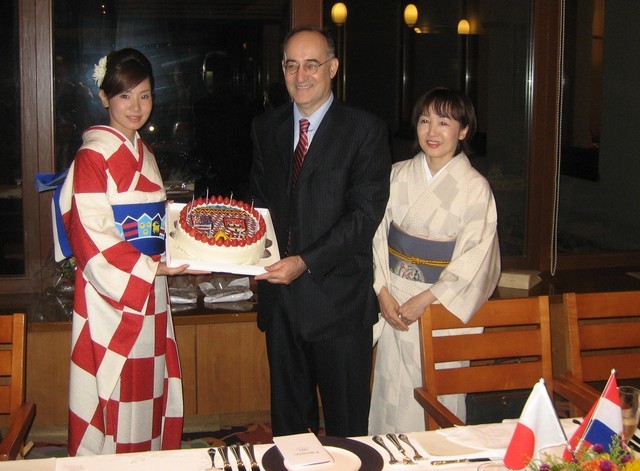
presence during the World Cup 2002 in Japan. The Mayor's daughter has worn it for the Croatian ambassador's birthday.
Dr Drago ©tambuk, distinguished Croatian diplomat and poet, receiving...
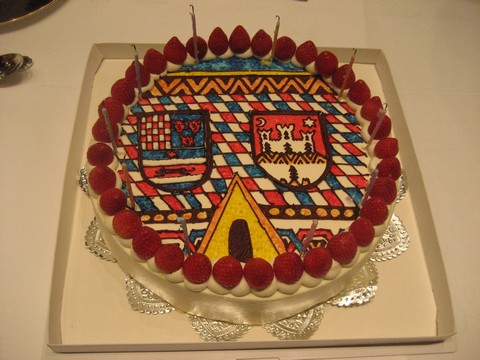
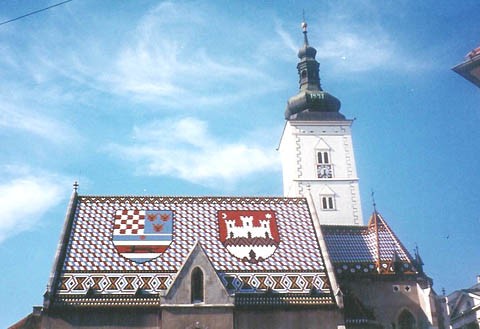
| HAIKU CONSCIOUSNESS FOREWORD Dr. Drago ©tambuk is a man who can be admired on so many levels. As a poet he is a rare distinctive voice whose work is at once rich and sparse, loaded with meaning and yet never overstated. In the words of Raymond Carver, “Drago ©tambuk is a real poet”. As a doctor in London in the 1980s he was involved in pioneering research into the HIV/AIDS virus, and as a diplomat he showed rare political courage at the time of the Croatian War of Independence as he was compelled to answer the call of the newly created Croatian state and exchange his medical career for one in diplomacy. And it was as in the guise of the diplomat that I first met Dr. ©tambuk, as he had come to meet colleagues from the University of Zagreb at the Asian Business and Management Conference in 2010 at the New Otani Hotel, in Osaka. At the time I did not know he was a writer although it came as no surprise. Like many diplomats, he chose his words carefully, but quite unlike many diplomats he was wonderfully honest. We talked of politics and history, before talking of modern literature,a subject which he lived and breathed, and I soon discovered he was friends with so many of the world’s great writers. As he headed back to Tokyo, we agreed to keep in touch and after little convincing, Dr. ©tambuk graciously agreed to chair the first Asian conference on Literature and Librarianship, and suggested at the same time the institution of a haiku award in the name of the late Vladimir Devidé, to which I readily agreed. It would be a fitting tribute to a great man. Things became difficult in late 2010, as Dr. ©tambuk informed me that he would be leaving Japan to go to the other side of the world, but he was eager to honour his commitment to the event, and in late May, after a long journey he arrived back in Japan. In his absence, Japan had suffered terribly in the wake of the devastating March 11 earthquake, tsunami and nuclear crisis. For Dr. ©tambuk to return to Japan was to return home when the country and his many friends in Japan needed him most. In his keynote address, he spoke movingly of his attachment and affection for the country and of his belief in the importance of what he terms “haiku consciousness”, underlining the normative and heuristic role of art within our lives as we seek a balance between man, machine and nature in the modern world. In his speech, this poet of great originality and charm used the tools of language to customary moving effect and asked us to reassess our role in the greater scheme. These questions may be difficult, yet they are increasingly impossible to ignore. On the Saturday evening of LibrAsia2011, the organization hosted a poetry reading attended by a number of leading writers and academics and Dr. ©tambuk read a powerful selection of his works in both English and Croatian. He was joined by the Grande Dame of Japanese poetry, the irrepressible Kazuko Shiraishi, who gave a touching and typically idiosyncratic performance. She had come because he had asked her. Like Vladimir Devidé, his spiritual forebear, Drago ©tambuk is a man of science and a man of letters, who has contributed hugely, not only to relations between Japan and Croatia, but between Japan and the wider world. I admire him most, however, as a compassionate and generous man, without whose support in these trying times, LibrAsia2011 would not have been such a success. Dr. Joseph Haldane Executive Director, IAFOR Brighton, August 2011 Source [PDF] |
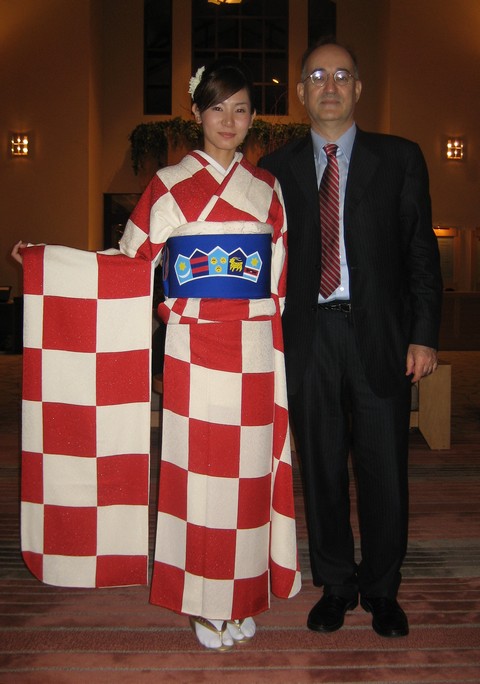
| DR. DRAGO ©TAMBUK His Excellency Dr. Drago ©tambuk is the Croatian Ambassador to Brazil, a post he took up in early 2011, after five years as Ambassador to Japan and the Republic of Korea. Dr. ©tambuk is a widely published and acclaimed poet, and is now recognized as one of Croatia’s most distinguished men of letters. His writing career began in 1973 and has grown to include more than 40 collections of poetry in Croatian, English, French and Spanish, and his work has been included in all relevant anthologies of Croatian contemporary poetry. The ambassador has received numerous literary awards in his native country and abroad, and was the first recipient of Dragutin Tadijanovic Award established in 2008 by the Croatian Academy of Sciences and Arts. He is also a founder and director of the All-Croatian Poetry Festival on the Island of Braè, founded in 1991. As well as his writing, Dr. ©tambuk has had two separate careers as both a medical doctor and a diplomat. A graduate of Zagreb University’s Medical School (1974), he went on to specialize in internal medicine, gastroenterology and hepatology at the Clinical Medical Center in Zagreb, before moving to London in 1983 to continue his medical career at both the Royal Free Hospital and St Stephen’s. Following the independence of Croatia in 1991, he became a diplomat, and has served as the Croatian ambassador to various countries, including India and Egypt, and from 2005 was named as Croatia’s representative in Tokyo. His brief was expanded to include the Republic of Korea in 2006.The ambassador was a Fellow at Harvard University from 2001 to 2002. He was appointed to the IAFOR International Advisory Board in 2010 as the conference chair for the first Asian Conference on Literature and Librarianship 2011, and instituted the Vladimir Devidé Haiku award as a tribute to Devidé, who had died earlier in 2010, serving as the judge since 2011. Source [PDF] |
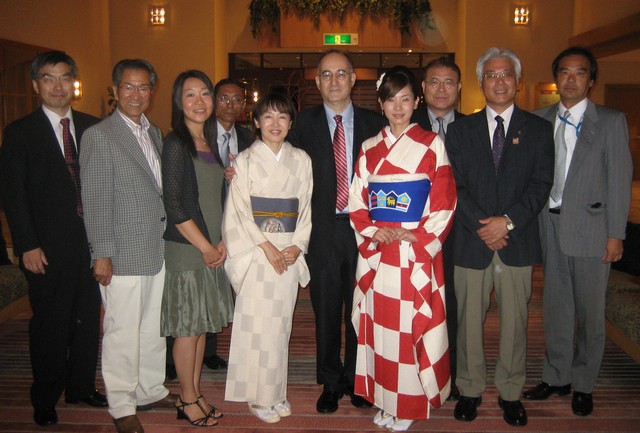
| HAIKU CONSCIOUSNESS DRAGO ©TAMBUK The Asian Conference on Literature and Librarianship 2011, Osaka, Japan Keynote Address, May 28th 2011 The images beamed around the world in the aftermath of the March 11th earthquake were nothing short of apocalyptic. For me, they brought to mind, and horribly crystallized, all the calamities with which our earth is presently afflicted: the warming of the planet and drastic climate change, poverty and hunger, pollution and the menace of nuclear disaster, conflicts for dwindling resources and about world supremacy. The population of the earth is threatened beyond words. Obliviously and obviously, we seem to march down a path of self-destruction that could be symbolically presented in the image of Ouroboros – the snake that eats its own tail. The world, our only world, as an Ouroboros! Isn’t our planet, along with mankind which populates it, on the verge of perishing? Yet we must strive to understand the condition of world in this time of looming and catastrophic downfall, to diagnose the disease in time and to prescribe the cure. We must fight with conviction, determination, and the will to survive. The pressing task of our day is the very continuation of human life on this beautiful God-given blue planet. You may think my depiction exceedingly bleak, but for all that, mine is a message of hope: I retain the conviction that mankind is capable of thinking, feeling and acting more harmoniously and responsibly than we do at present. And I want to use the haiku as a way of thinking about an improved humanity. The haiku is a way of accessing and representing, an agenda for the common good, for the common betterment. By definition, the haiku is brief; even tiny. Yet in three short lines, a vast metaphysical expanse opens up: this is the paradox, the shock and the achievement of the haiku. A minimal amount of text charged with infinite space and time. I call this open space, this arena of metaphysics, the haiku consciousness. It is a way of being in harmony with nature, and with one’s own nature. It’s a way of connecting between the world inside and the world outside; of joining our own internal light with the exterior illumination. Imagine what it could mean for our world if haiku consciousness and composition could be globalised, could be generalised, universalised.Haiku acts as a harmonising force on man’s relation with nature, with the outside world. Especially in an era where disjuncture between man and nature is so pronounced, we should inculcate the noble concepts of haiku, and disseminate the practice as widely as possible. To encourage the global practice of haiku, I think it is crucial to set aside strict rules and limitations of prosody that are not crucial to its composition or aesthetic. When I proposed the creation of a Haiku Award in memory of Professor Vladimir Devidé, the pioneer of haiku in Croatia and in the region as a whole, I suggested that modern and traditional haiku should be treated as equals. This is especially crucial for international haiku composition and competition, since not all languages can reflect Japanese syllabic patterns, nor do all climates mirror the four clear seasons which find expression in classical haiku. Insistence on narrow limitations won’t give the haiku room to breathe in other languages, climates, cultures. Haiku is something more universal than its mere formal rules: it is a state of mind and an approach to thought, and as such it cannot be confined to a certain amount of syllables or morae. Let me explain what I think haiku can do for the spirit. I believe that all the great sacred traditions show that consciousness began with only inner light, in a time when humanity was in union with the Supreme Beingand Creator. Corruption originated when people began tasting of the earth and of the outer light. The external world is thus the creation of otherness, which by the same token diminished the essence of our creation by diverting us from God and breaking our union with Him. This is the tension that creates the need for a metaphysical resolution. The haiku woman or man (rather than the poet) is a person who stands inside that chaotic darkness and waits. This is not an idle way of waiting; it is alert, conscious and focused. What do they wait for? They wait for the lightning to strike – that lightning which illuminates the world around them. To look at the world boldly, in the sudden light of haiku consciousness is to commit an act of love and complete understanding. Looking becomes presence – the gift of seeing, in depth, and with the power of discernment. It is a kind of satori beyond the critical mind and devoid of criticism. Compassion permeates this kind of mindfulness and attentiveness. Haiku leads us in the right direction, homewards, in a process of rediscovery and reassimilation of our compelling and inherent universal values. Our inherent and perpetual longing for our real homeland, for the Golden Age, for union with the divine, is an attempt to counteract the chaotic differentiation which has defined our behaviour from time immemorial. Thus, haiku consciousness is a deceptively modest and indirect way of animating our memory of the long-gone Golden Era. In today’s prevailing atmosphere of chaos and disorder, haiku consciousness brings into focus the ambient disruption and cacophony, while highlighting the need for serenity, for the homecoming. We have lost sight of our own nature in the whirl of the day-to-day, in the fog of petty concerns. The quotidian overwhelms the crucial values of our existence; myopic greed and consumerism have put us at odds with our environment, with our only planet. This is not a new development; from the beginning of the earth, the human ego has created an existential disorder and broken our joint vessel; now it has initiated, brought on the epoch of apocalypses. The haiku is a minute and piecemeal, but inestimable and hopeful corrective. Through it we can inch closer to a reconstruction of the lost harmony between ourselves and nature, ourselves and God. In a world overcrowded with people, objects and concrete, it is through small acts that we can enlarge our metaphysical space, that we expand our capacity for love, charity and compassion, that we must look to our salvation. There are many words for what we have lost; our Tao, our way, our union with the gods, our fullness, our wholeness, our completeness. There can be no other remedy but a return to older ways of thinking and feeling. Haiku creates a new old completeness of Earth and Heaven, Man and God, visible and invisible. Through it we can train ourselves to regain our old consciousness. This is my agenda for haiku consciousness; to awaken our metaphysical sensitivity, open our eyes wide, and—in a flash of understanding of all our blind decisions and wrong turns—finally choose the only tenable option, a soothing spiritual path to heal and recuperate, path for which we can use the same name as ancient traditions did – Tao, the Way, Eternal Home. We must learn or relearn how to give love and how to receive love. Therefore I welcome all of you who are involved in haiku writing, and also all of you who read and cherish haiku and contribute to the forces of good - what I like to call survivalist band. I invite you to join hands in encouraging the globalisation of the forces of good, of everything that I have been trying to underline: the haiku forces of beauty and homecoming. All those of you who through the ancient Japanese traditions of Shintoism and Buddhism understand the meaning and value of jodo – the pure land concept of the sacredness of earth, which views nature as an ally, an inescapable friend and a nurturer of humanity; I repeat the call for you to work towards haiku’s regenerative influence on ecology and green thinking, to proselytise the religious love of nature, i.e. its assistance and contribution to our survival.Therefore:Vivat haiku! – let’s live in, of and by haiku consciousness and writing. Let’s celebrate its ethical purity, its metaphysical austerity, let’s become the priests and followers of religion called poetry. With the concerted efforts of all who are gathered here today and of our friends elsewhere, let’s clear away the corruption and decay, the suffocating materialism, the strangling vines about our spirits, let’s scrape the mould from our souls. The values of life, love, peace, compassion and harmony must prevail on our earth; otherwise our existence will be cut short. Anyone who wants to govern mankind and nations must become its servant. Thus, let us all become servants dedicated to serving the good, initiating the change in our own hearts, bringing out the living existence of the great heart, the great soul, the Mahatma of humanity. I wish to close with an example of linguistic sophistication in Japanese, its stunning capacity to denote, to name the grades and hues of existence. So, for example, in discerning degrees of moisture. There are many, but I’d like to cite one example - SHIMERU, which denotes the grade of moisture in the air, too great for a person to strike a match. We can use it as an allegory. Against the creeping damp of our world, we must exert our own burning and warming hearts to lessen SHIMERU. That way, we can ignite our matches, make a fire in our hearth again, a fire on which we can warm our hands. We need to return to warmth and compassion. We should be warm to others, so that we can ourselvews feel warm again. We should love to be loved again. The haiku is a minute and precise, a precious tool in this endeavour. It is a tool of our salvation; therefore I’ll finish this presentation by reading in three versions (Japanese, English and Croatian) one of the greatest and exceptionally majestic, perhaps the most spacious, all-encompassing haiku of all times, which prompted my piligrimage to Japanese Sado Island in 2009. You already know where this is heading: Matsuo BASHOSource [PDF] |
| “The haiku is a way of accessing and representing, an agenda for the common good, for the common betterment. By definition, the haiku is brief; even tiny. Yet in three short lines, a vast metaphysical expanse opens up: this is the paradox, the shock and the achievement of the haiku. A minimal amount of text charged with infinite space and time. I call this open space, this arena of metaphysics, the haiku consciousness.” Drago ©tambuk The Asian Conference on Literature and Librarianship 2011, Osaka, Japan IAFOR Publications / Japan www.iafor.org Source [PDF] |


| GRAND PRIZE Vladimir Devidé Haiku Award 2015 pregnancy shape of the dark side of the crescent moon Boris Nazansky, Croatia |
| Submissions for the IAFOR Vladimir Devidé Haiku Award are now open The IAFOR Vladimir Devidé Haiku Award (VDHA2016) is an open competition for previously unpublished haiku written in the English language. The award is for haiku regardless of whether in the traditional or modern style; it transcends haiku divisions and is based only on literary merit. The award was founded by H.E. Dr. Drago ©tambuk, Croatian Ambassador to Japan (2005-2010), then Ambassador to Brazil, and Dr. Joseph Haldane, President of The International Academic Forum (IAFOR). The award is judged by Dr. ©tambuk, and is organised by IAFOR and The Asian Conference on Literature & Librarianship (LibrAsia), with the kind support of the Haiku International Association (HIA) and the World Haiku Association (WHA). Winners will be announced at The Sixth Asian Conference on Literature, Librarianship and Archival Science, to be held from Thursday, April 7 to Sunday, April 10, 2016. Commended entries, runners up and the winner of the Grand Prize will be published online and in the IAFOR book of haiku, which authors will receive a copy of. Winning authors will also be invited to attend the LibrAsia2016 plenary day on April 8, 2016 in Kobe, Japan. This will include entry to the award ceremony and haiku reading, and haiku workshop with Hana Fujimoto and Emiko Miyashita of the Haiku International Association. Only previously unpublished haiku will be considered. Please submit just one entry (see below for submission form). The deadline for submissions is March 1, 2016. Surce iaforhaikuaward.org |

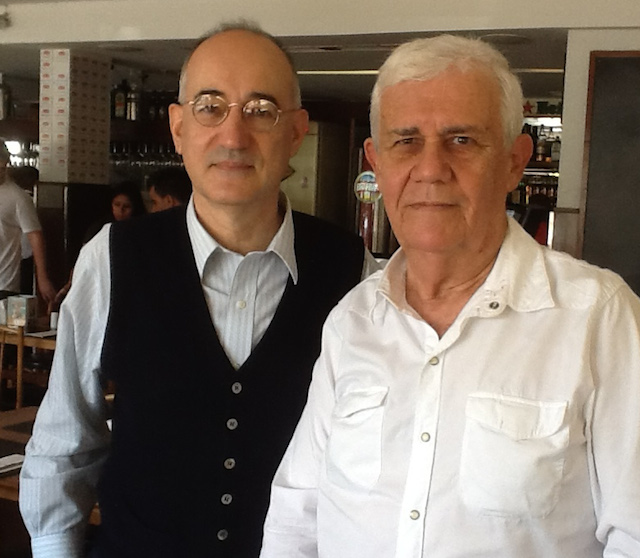
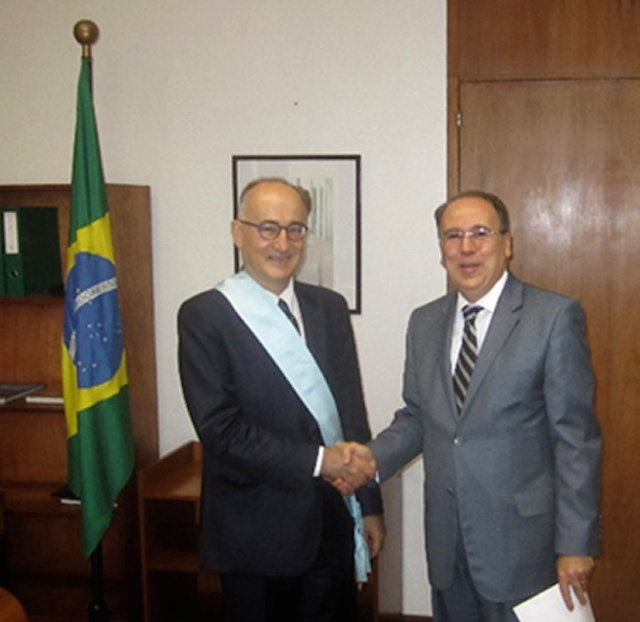
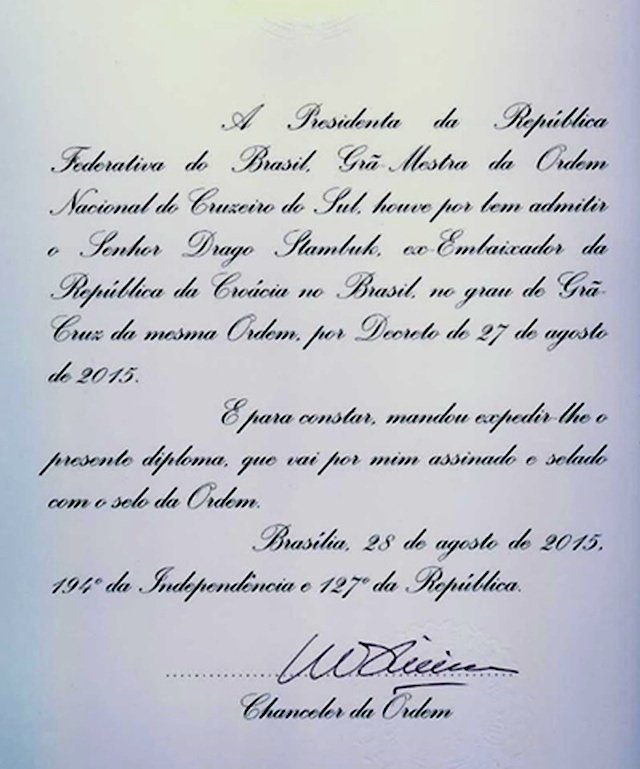
| O poeta Drago Stambuk, embaixador da Croácia, ao deixar o Brasil ao final de sua missão diplomática, recebeu uma homenagem incomum, mas louvável, a GRÃ CRUZ DA ORDEM CRUZEIRO DO SUL, máxima conderação outorgada pelo governo brasileiro a figuras de relevo no cenário nacional e internacional. Na foto, o homenageado com o Embaixador Fernando Simas Magalhães, Secretário do Itamaraty, responsável pelo memorável discurso em que ressalta os méritos que levaram à concessão da medalha. Além das funções próprias de sua posição de embaixador, Drago Stambuk exerceu uma intensa atividade cultural e publicou livros de poemas em nosso idioma, muitos deles escritos aqui, revelando sua visão de nossa brasilidade e outras impressões de sua vasta experiência internacional. Regressou à Croácia no final de outubro de 2015. Source www.antoniomiranda.com.br |
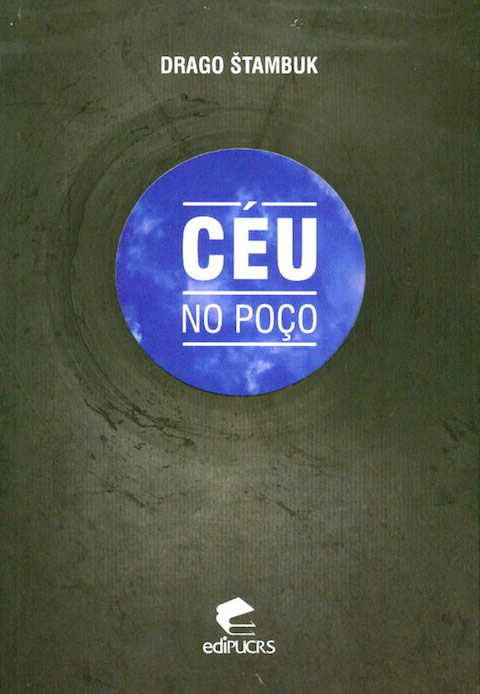
Tradução da língua croata Tomislav Correia-Deur / Milan Puh.
Porto Alegre, RS: ediPUCRS, 2014. 207 p. 14x21 cm.
ISBN 978-85-397-0422-4
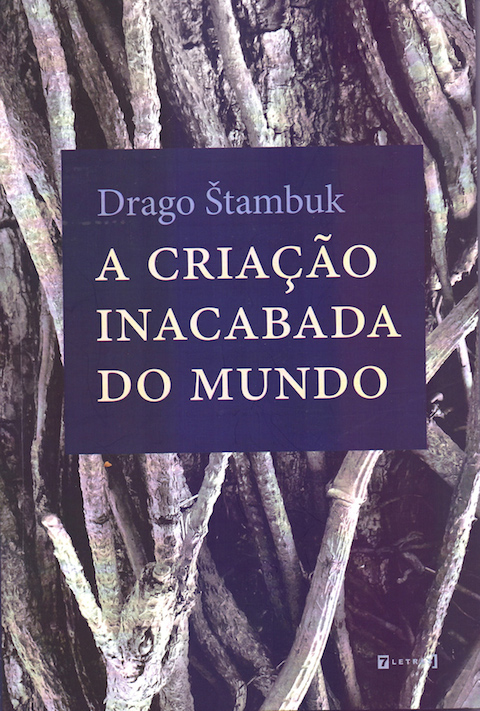 STAMBUK, Drago. A Criação inacabada do mundo. Rio de Janeiro: 7Letras, 2015. 110 p. 15.5x23 cm. Tradução do croata: Milan Puh e Drago Stambuk. ISBN 978-85-421-0413-4 Drago ©tambuk é um dos autores mais importantes da Croácia, com mais de 50 obras publicadas e traduzidas para diversos idiomas. A publicação no Brasil deste seu novo livro, A criação inacabada do mundo, tem um significado especial na trajetória do escritor: muitos dos poemas aqui presentes foram escritos em terras brasileiras, sob o impacto de nossos cenários e paisagens, trazendo também um pouco do sabor exótico e da sonoridade de nossa língua para sua poesia – na presente tradução, estão assinalados em itálico os trechos que foram escritos em português na versão original croata. Source www.7letras.com.br |
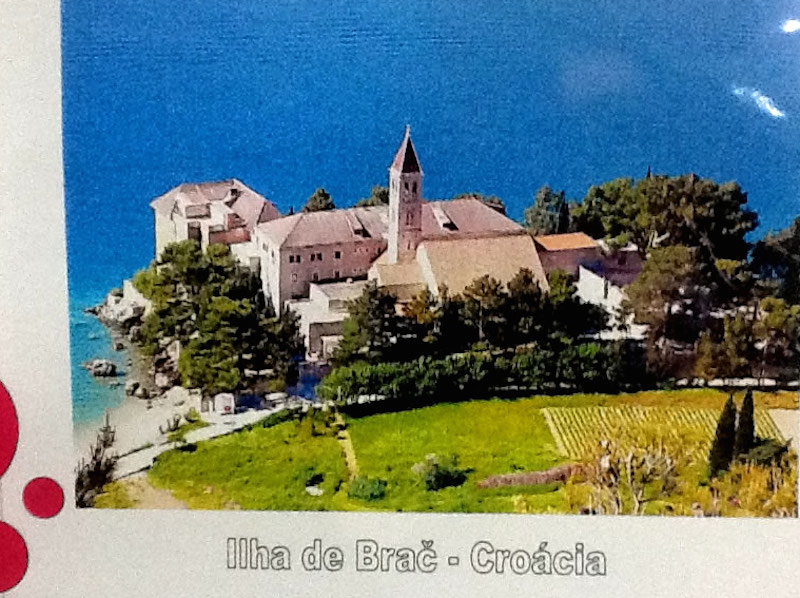
| Drago Stambuk nasceu em Selca, na ilha de Braè, Croácia, no dia 20 de setembro de 1950. Durante a infância, viveu e estudou em Split. Graduouse em Medicina com especialização em gastrenterologia e ênfase na área de hepatologia em Zagreb. A partir de 1983, dedicou-se à pesquisa científica e ao tratamento de doenças hepáticas e AIDS em Londres. Em 1991, ingressou na carreira diplomática, representando seu país na Grã-Bretanhã. Depois, foi embaixador da Croácia na Índia e no Sri Lanka (1995 a 1998), no Egito e em diversos países árabes (1998 a 2000), no Japão e na Coreia do Sul (2005 a 2010). Desde 2011, é Embaixador para Brasil, Colômbia e Venezuela. É fellow da Universidade de Harvard, onde estudou e trabalhou como professor. Paralelamente à medicina e à diplomacia, Stambuk desenvolveu uma intensa carreira como poeta, que o coloca entre os mais importantes autores contemporâneos de seu país. Em 1973, publicou seus primeiros poemas em "Vidik" e hoje tem mais de 40 obras - principalmente de poesia — publicadas em croata e traduzidas para diversos idiomas. Stambuk é autor da polêmica antologia INSULAE/nova lírica croata (1981), com a qual abriu espaço para uma nova tendência neoplatônica na jovem poesia croata, que veio a ser conhecida como insularismo. Em 1991, fundou o festival linguístico-poético Croatia rediviva, que ocorre anualmente em Selca, na ilha de Braë. A cada ano, um poeta recebe a coroa de ramos de oliveira, tornando-se poeta oliveatus, e tem seus versos gravados em placa de mármore e incluídos na Parede de poesia. Além disso, Stambuk compilou as antologias Coroa de Oliveira 1-4, nas quais foram publicados poemas dos coroados do festival. Stambuk é membro da Sociedade Croata de Escritores e do PEN Club da Croácia, da Inglaterra e do Japão. Em 2010, estabeleceu no Japão o prêmio literário internacional Vladimir Devidé para melhor haikai em língua inglesa. Source http://www.antoniomiranda.com.br/poesia_brasis/distrito_federal/drago_stambuck.html |
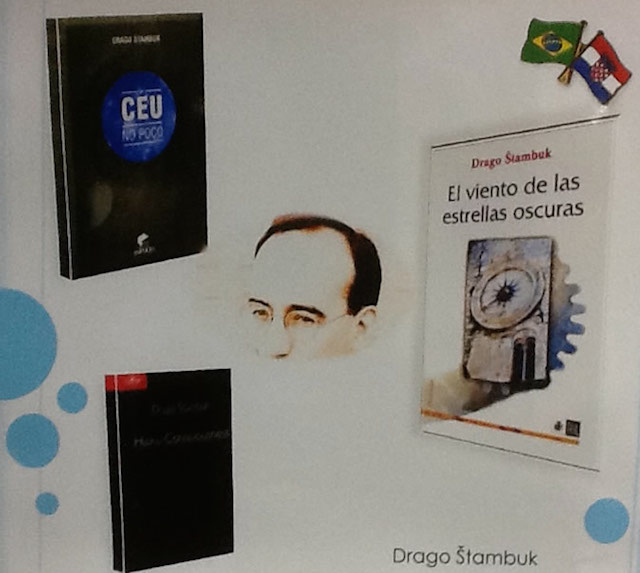
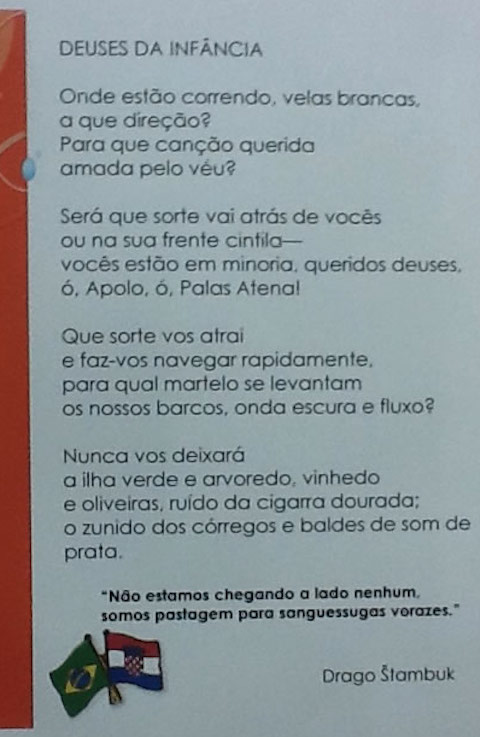
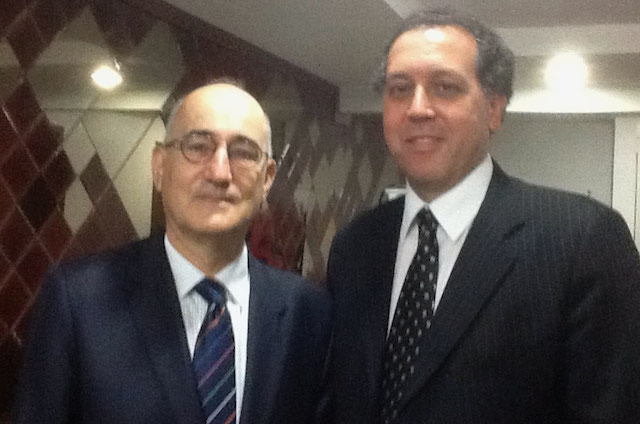
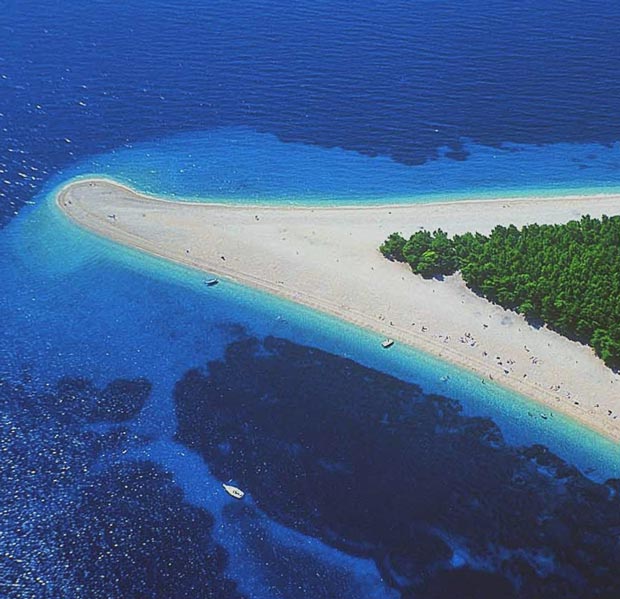
This is the native islnad of Dr. Drago ©tambuk, distinguished Croatian diplomat and poet.
Formated for CROWN by Darko ®ubriniæ
Distributed by www.Croatia.org . This message is intended for Croatian Associations/Institutions and their Friends in Croatia and in the World. The opinions/articles expressed on this list do not reflect personal opinions of the moderator. If the reader of this message is not the intended recipient, please delete or destroy all copies of this communication and please, let us know!